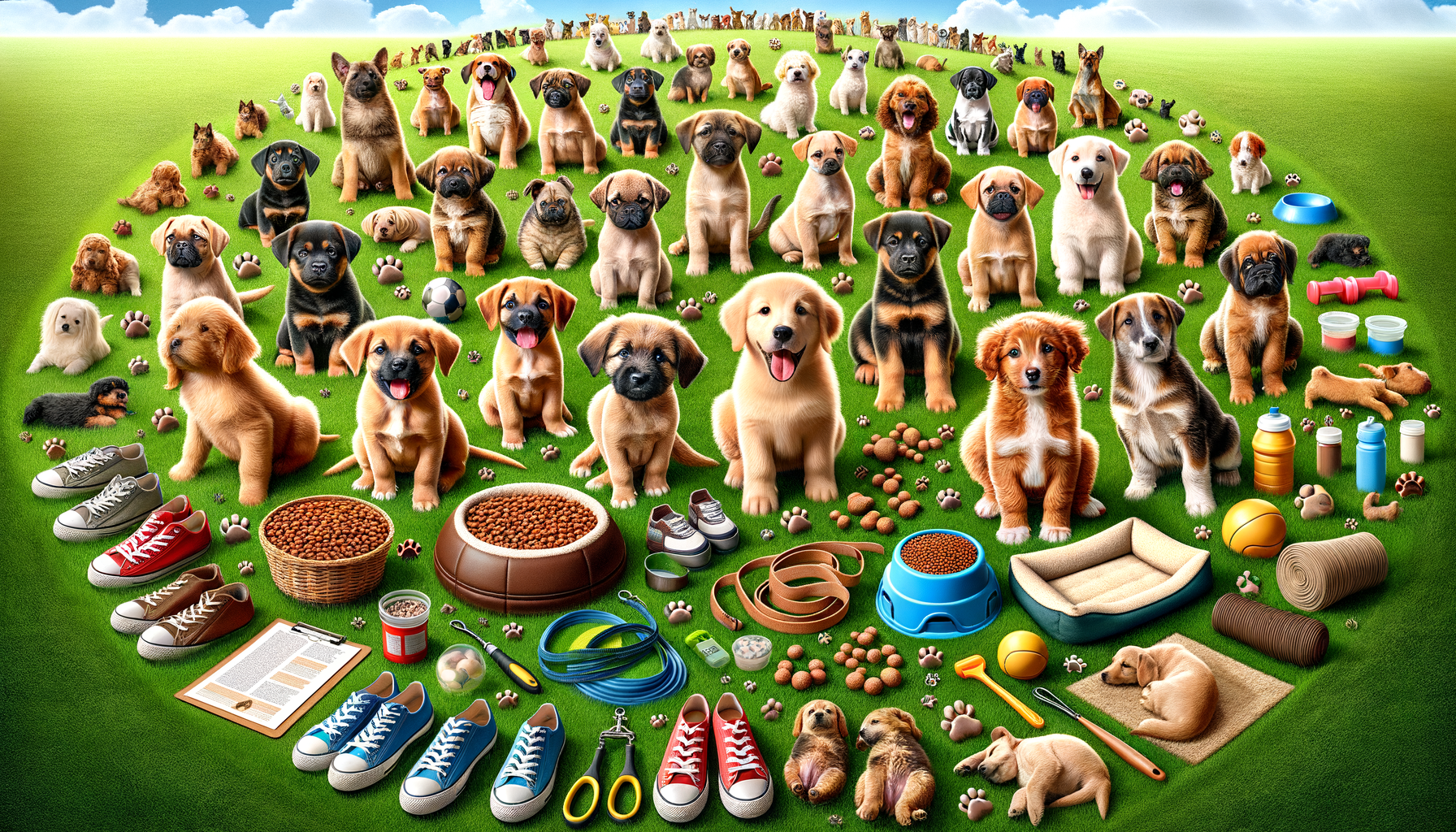Understanding Different Puppy Breeds
Puppies come in a variety of breeds, each with distinct characteristics that can influence their behavior, size, and care needs. Understanding these differences is crucial for potential pet owners to ensure a harmonious relationship between the puppy and their household. Some breeds are known for their energetic and playful nature, while others might be more reserved and calm. For example, Labrador Retrievers are renowned for their friendly demeanor and high energy levels, making them suitable for active families. Conversely, breeds like the Basset Hound are more laid-back and might suit a quieter household.
When selecting a breed, consider factors such as:
- Size and living space: Larger breeds may require more room to roam.
- Exercise needs: Active breeds need more physical activity.
- Temperament: Some breeds are more suited to families with children.
- Grooming requirements: Long-haired breeds may need regular grooming.
Researching breed-specific traits helps in making an informed decision that aligns with lifestyle and preferences, ensuring a happy and healthy environment for the puppy.
The Importance of Socialization and Training
Socialization and training are essential components in raising a well-adjusted puppy. Early socialization involves exposing the puppy to a variety of environments, people, and other animals to build confidence and reduce fearfulness. This process is vital in preventing behavioral issues later in life.
Training should start as soon as the puppy arrives home. Basic commands such as sit, stay, and come are foundational and can be taught using positive reinforcement techniques. Consistency and patience are key, as puppies learn at different paces. Consider enrolling in puppy training classes, which provide structured learning and can enhance the bonding experience between the owner and the puppy.
Proper socialization and training not only contribute to a well-behaved pet but also strengthen the relationship between the puppy and its owner, leading to a more enjoyable companionship.
Nutrition and Health Care for Puppies
Providing the right nutrition is crucial for a puppy’s growth and development. Puppies have different dietary needs compared to adult dogs, requiring more calories, proteins, and nutrients to support their rapid growth. It’s important to choose a high-quality puppy food that meets these nutritional requirements.
Regular veterinary check-ups are essential to monitor the puppy’s health and to administer necessary vaccinations. These visits help in identifying any potential health issues early on and provide an opportunity to discuss any concerns with a professional.
Additionally, preventive care such as flea and tick prevention, deworming, and dental care should be part of the puppy’s health regimen. Ensuring a balanced diet and regular health care will contribute to a long, healthy life for the puppy.
Creating a Safe and Stimulating Environment
Setting up a safe and stimulating environment is vital for a puppy’s well-being. Puppies are naturally curious and need a space where they can explore without the risk of injury. Puppy-proofing the home involves removing or securing items that could be hazardous, such as electrical cords, small objects, and toxic plants or substances.
Providing a variety of toys can help in mental and physical stimulation, preventing boredom and destructive behaviors. Interactive toys, such as puzzle feeders, can challenge the puppy’s mind and provide entertainment.
A designated sleeping area with a comfortable bed gives the puppy a sense of security and a place to retreat when they need rest. Creating a routine that includes playtime, feeding, and rest helps in establishing a sense of stability for the puppy.
Building a Lifelong Bond with Your Puppy
Building a strong bond with your puppy is a rewarding experience that requires time, patience, and love. Spending quality time together through play, training, and daily activities enhances the relationship and helps in understanding the puppy’s unique personality and needs.
Communication is key in building this bond. Puppies respond well to positive reinforcement and gentle guidance. Understanding their body language and vocal cues can help in responding appropriately to their needs and emotions.
As the puppy grows, maintaining this bond involves adapting to changes in their behavior and preferences. Continuing to engage in activities that both the owner and the puppy enjoy fosters a lifelong connection built on trust and companionship.




Leave a Reply